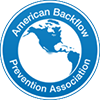Below are answers to some of the most common questions we receive. If you don't see your question, email us!
What is backflow?
Backflow is the undesirable reversal of water flow in a piping system. Instead of flowing in the intended direction, contaminated water or other substances can flow backward into the clean water supply.
Why is backflow prevention important?
Backflow can introduce harmful pollutants into drinking water, posing serious health risks. It can contaminate the water supply with anything from pesticides and fertilizers to sewage and industrial chemicals.
What is a backflow prevention device?
A backflow prevention device is a mechanical assembly designed to prevent backflow. There are different types of devices depending on the degree of hazard.
Who is responsible for backflow prevention?
Property owners are typically responsible for installing, maintaining, and testing backflow prevention devices on their property.
How often do backflow devices need to be tested?
In North Carolina, most backflow prevention devices require annual testing by a certified backflow tester.
What happens if my backflow device fails testing?
If your device fails testing, it must be repaired or replaced by a certified professional. You'll also need to have it retested to ensure it's functioning correctly.
Are there specific backflow prevention requirements in North Carolina?
Yes, North Carolina has specific regulations regarding backflow prevention, including requirements for device selection, installation, testing, and reporting. These regulations are enforced by the state and local authorities.
How does North Carolina's climate affect backflow prevention?
North Carolina's temperature fluctuations, including occasional freezing weather, can impact backflow devices. Proper insulation and protection are crucial to prevent damage to the device and ensure its continued functionality. Additionally, heavy rainfall events can put a strain on water systems, increasing the risk of backflow.
Does groundwater affect backflow prevention in NC?
High groundwater tables, common in some areas of North Carolina, can affect the installation and performance of backflow devices, especially those installed underground. Proper drainage and site preparation are important considerations.
Where can I find a certified backflow tester in North Carolina?
The North Carolina Department of Environmental Quality (NCDEQ) or your local water utility can often provide resources or lists of certified backflow testers in your area. You can also search online directories of qualified professionals.


